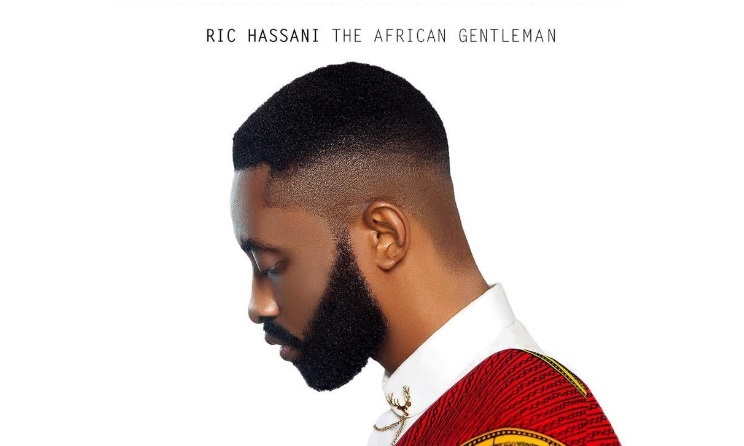Review: Ric Hassani is more than your average gentleman
The African gentleman is a mythical creature. Think of him as Anansi or the talking tortoise—or so said Fela, who must be sorely disappointed in Ric Hassani.
 Ric Hassani: 'the non-alpha-male suitor'.
Ric Hassani: 'the non-alpha-male suitor'.
Hassani, whose real name is Ikechukwu Eric Ahiauzu, has titled his debut album The African Gentleman, thus officially claiming that three-word title as nickname. Fela turns in his grave: Only 20 years after his death, and this is what his countryman gets up to?
As you’d expect from someone with his nickname, Hassani makes music with enough strings and plaintive vocals to belong in a sappy Hollywood musical. Those drums that have coloured the records of his more mainstream peers show up lightly, and at least one of his drum-backed songs is clearly intended to court a set of listeners different from those who, drawn by the cool sophistication of ‘Gentleman’, the 2015 single which made Hassani’s name, became early fans.
Those fans need not be surprised by their man’s apparent desire for mainstream appeal. Ric Hassani has probably seen that in his country only pop artists make a decent living from making music. “I would not say I am alternative,” he said in an interview with the Guardian. “I think that most times, people tend to call a new or different sound that they aren’t used to alternative, but I best define myself as a pop artist.”
Yeah, never mind that one of his songs ‘As Long As You Love Me’ is less influenced by Plantashun Boiz than by Backstreet Boys. (Fans of a certain age might recall the 1997 hit song of same name by the American boy band.) Never mind that the start of an acoustic version of ‘Gentleman’ (included on the overlong deluxe version of the album) is similar to the first few seconds of Vanessa Carlton’s ‘A Thousand Miles’. There is no chance that any of those songs passes for pop in contemporary Nigerian music.
The trouble as you may have guessed is that Ric Hassani is sure to be outmanoeuvred in the pop space. One of his songs uses “scatter the floor, give it to dem, gimme the wine ah!” in the style of localised dancehall, but, its pleasantness notwithstanding, there is no way the song would replace a track by a true pop act, even a minor one like, say, LAX, on anyone’s playlist.
Ric Hassani might not be aware, but his persona—the non-alpha-male suitor—belongs in the good-guy group fronted by Adekunle Gold. Both men hope to get the girl by being sweet.
On occasion a lustier guy shows up, as happens on Adekunle Gold’s ‘Sweet Me’ and on Hassani’s ‘Oge Na Ga’ featuring Cabo Snoop, Xcellente and Mr Nomsy. But these men are not satyrs like their more mainstream colleagues. Adekunle Gold accepted his status and has now entered the pop space through the backdoor: he refused to pander and somehow became too big for the space he created. Of course, Adekunle Gold has the Yoruba language and the long history of traditional Yoruba music, juju notably, on his side. Hassani’s western music influence means he has too little to fall back on locally; he has turned up on the scene when good English gets a man a pat from his former headmistress but is near-incompatible with pop success. Still you want to see him commit to the sound that clearly has his heart.
On songs where he does commit—as he does on the single word titled ‘Gentleman’, ‘Police’, ‘Sing’ and ‘Believe’—the results are believable. You might even dance to ‘Believe’, which is the first time drums form a major part of the music on The African Gentleman. The dancing should continue with ‘Number One’, a song so delightful it will secure a spot within wedding song playlists. A more sober wedding song ‘Marry You’ follows. It is a bit of a one-two punch of matrimonial music—the latter is for the walk down the aisle, and the former for the reception.
The African Gentleman is woman-centred and as, presumably, the two women most important in a man’s life are his mother and partner, Ric Hassani does an ambiguous thing by combining tributes to both on one song. The song ‘Sweet Mother’ with Zambia’s Mumba Yachi recalls the Nico Mbarga classic, but the late Cameroonian didn’t perform the shapeshifting Hassani does on his hook: “My girl you look so fine…my number one woman in my life and you know that you remind me of my mama, sweet mother, love me like no other.”
Yachi’s wonderfully teary voice provides a delicious contrast to the song’s bouncy beat, but you just might wonder: Which of these women is the man’s true number one? Apparently, being a gentleman doesn’t mean you can’t be smooth.
Ric Hassani may not be quite as smooth in attracting a large pop audience, but he should be fine. To be a gentleman, after all, is to possess a practised contentment.
Buy The African Gentleman on iTunes
Artist: Ric Hassani
Album: The African Gentleman
Label, Year: Riverland Records, 2017















Commentaires
s'identifier or register to post comments